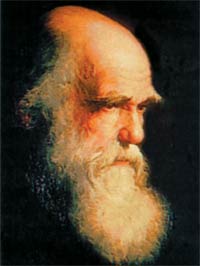
Before examining the perfection of the systems that allow birds to talk, first it's worth dwelling on the invalid assumption of "coincidence," the foundation of all the hypotheses in evolutionary theory. Doing so will make it easier to see through the highly illogical claim that the remarkable characteristics of the creatures cited in this book are simply the product of coincidences.
The noun coincidence is typically modified by such adjectives as unconscious, disorderly, unplanned and random. These words imply no conscious power, system, rationality, nor any source of knowledge. They express the occurrence of unplanned situations, and spontaneous events with no specific purpose.
But look at how the word coincidence is used in Darwinist-materialist circles, and you’ll encounter somewhat different definitions. Scientists who defend the Darwinist-materialist philosophy link to the word coincidence meanings that should rightly be attributed to Creation, such as consciousness, rationality, knowledge, and plan. They speak about coincidence as though it were referring to a powerful sentient being. Their purpose in all this is to deny the reality that living creatures have been created.
R. C. Sproul, author of Not A Chance, explains the unrealistic “scientific” meaning that coincidence has acquired in Darwinist circles:
When scientists attribute instrumental power to chance, they have left the domain of physics and resorted to magic. Chance is their magic wand to make not only rabbits but entire universes appear out of nothing.1

Overlooking the reality of creation despite immeasurable scientific proof, and continuing to defend their ideology with great fanaticism, they do not realize how wrong they are. How far they have distanced themselves from reason and logic! In his work La Science et la réalité (Science and Reality), French scientist and Professor Pierre Delbet has this to say about the fallacy of attributing creative power to coincidence:
Chance appears today as a law, the most general of all laws. It has become for me a soft pillow like the one which in Montaigne's words only ignorance and disinterest can provide, but this is a scientific pillow.2
In reality, the concept of "coincidence," which Darwinists use as a scientific explanation for life's origins expresses randomness, uncertainty, and lack of purpose. Therefore, to claim that a perfect system and a perfect balance are the product of these "blind coincidences" is incompatible with reason, logic and the scientific method. To suggest that an existing design is "without purpose," or to try and explain a functioning system with "chance happenings" is plain denial.

D"Say: 'Have you thought about your partner gods, those you call upon besides God? Show me what they have created of the Earth?'..." (Qur'an, 35:40)
To illustrate the impossibility of Darwinist scientists' claim that life is the product of coincidence, just think of a huge warehouse filled with various electronic devices, circuitry, cables and wiring. What if we wait for these various parts to assemble themselves into a computer? How long, do you think, would it take for those parts to start fitting themselves together as the result of a "coincidence"? How probable is it? Independent parts have no knowledge of what kind of structure they will form when they are put together. Of course, they have no idea of their basic purpose—to produce a functioning computer. However long you wait, this illusionary scenario will remain impossible to achieve.

 Charles Darwin
Charles DarwinNo one doubts that some conscious being’s intervention is required for these components to assemble themselves into some kind of design. In such a situation, the effects of coincidence would do no more than to upset whatever order already exists. If it’s irrational to dwell on the likelihood of mechanical parts coming together into even a single computer as a result of uncontrolled effects, it’s even more highly irrational to suggest that countless living creatures possessing complex systems, whose every organ is composed of scores of essential parts, could be the product of coincidence.
Michael J. Behe, a famous professor of biochemistry, expressed his astonishment to colleagues who see coincidence as the law of the order and the diversity that we encounter:
Chance is of course chance, but law in this context we can see as Darwinian evolution. Although we conclude that some features of the cell have been designed, many may have arisen gradually through mutation or natural selection. Only if we rule out chance and law can we move on to conclude that a feature was designed.3
 Michael Behe
Michael BeheAs we have pointed out, Darwinists see “coincidence” as the principle that has created all living creatures, their complex anatomical structures and genetic information. They believe that acts that in reality require forms of intelligence—such as calculation, planning, design and judgment—are brought to a successful conclusion by coincidences. Defenders of this absurd understanding attribute extraordinary roles and meanings to “coincidence.” According to them, the power that fashioned the brains, the minds, thinking and reasoning ability, memories, appearances and other characteristics of all those who have ever lived, for hundreds of thousands of years, is a genius by the name of “coincidence.” According to this ridiculous claim, those professors who make discoveries and solve complex physical equations, those artists who create valuable works of art, those statesmen who lead millions of citizens are brought into existence through unconscious coincidences. According to Darwinists, the only things that blind coincidence needs to bring about such extraordinary events are the mechanism called “natural selection” and time. According to this warped logic, all coincidence needs is time, to turn black mud into birds, horses, giraffes, butterflies—and even scientists, politicians and painters. There is absolutely no scientific evidence to support these claims, which resemble a fantastic, irrational science fiction yarn.
To date, we have published several books dealing with the subject of evolution. In several, we have mentioned the various wonders of creation that invalidate these totally illogical claims. This present book will take up one of the important pieces of evidence of creation, birds’ ability to talk and imitate sounds. Here, we’ll display the serious logical flaws in the arguments produced by evolutionists, who lead themselves up the blind alley of coincidence. And we’ll make clear for all to see the impasse in which they find themselves.

In the illustration above, a clock is gradually assembled in stages. In any of the intermediate phases, the clock cannot run. Only when every part is in the right place can it work properly. No one would claim that this clock's parts had been shaped by natural effects and assembled into one piece over time. Yet the evolutionists claim that living creatures' complex systems were formed in phases, by coincidental mechanisms. In blind defense of their theory, they claim that living creatures are products of coincidence—even though this assertion is untenable even in the case of a simple clock.
1. R. C. Sproul, Not A Chance, The Myth of Chance in Modern Science & Cosmology, Baker Books, 3rd ed., USA, 1997, p. 9.![]()
2. Ibid., p. 8, [Jaki, God and the Cosmologists, p. 149; Pierre Delbet, La Science et la réalité, Paris: Flammarion, 1913, p. 238].![]()
3. William Dembski, Mere Creation, Science, Faith & Intelligent Design, InterVarsity Press, USA, 1998, p. 194.![]()